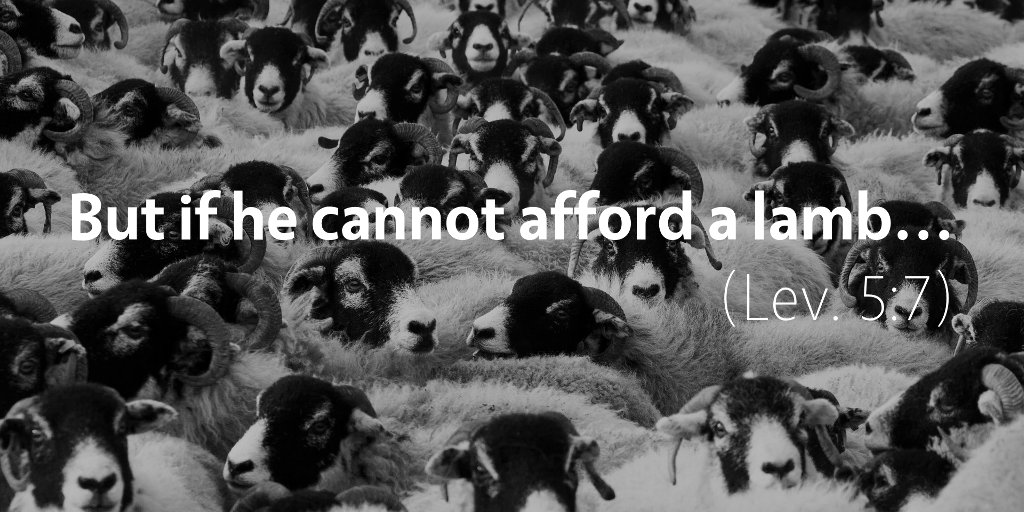Bible Readings for April 2nd
Leviticus 5 | Psalm 3–4 | Proverbs 20 | Colossians 3
In the Levitical sacrificial system, the offerings worshipers brought were, by design, costly. In the ancient world, wealth wasn’t measured as much by the number of dollars in a bank account but more often by the amount of livestock a person owned. So, when God says, “For every beast in the forest is mine, the cattle on a thousand hills” (Ps. 50:10), he is making a claim that he possesses all the wealth in the entire world, as measured by animals—not only domesticated livestock (cattle), but even the wild beasts in the forest.
The question we should be asking by this point, then, is this: What will all the poor people in Israel do to bring sacrifices before Yahweh? If they can’t afford to bring bulls or goats (which were incredibly expensive), what would they do? Would they be unable to receive atonement and forgiveness for their sins? Is the worship of Yahweh something that only the richest in Israel could afford to do?
Not at all. In Leviticus 5:7–13, we see yet another degree of Yahweh’s gracious mercy toward his people as Yahweh makes provision for people who could not afford to bring the more expensive sacrifices. If, for example, someone couldn’t afford a lamb, that person could bring two pigeons or two turtledoves (Lev. 5:7)—and if someone couldn’t even afford turtledoves or pigeons, then that person could simply bring an ephah of fine flour (Lev. 5:11). No matter whether you were rich or poor, Yahweh had appointed a sacrifice that was within your means to offer.
But at the same time, we should recognize that sacrifices were supposed to be costly. If the sacrifices cost nothing of the worshiper, then they didn’t qualify as sacrifices. For this reason, Yahweh was furious in Malachi 1:6–14 with the worshipers who demonstrated such great contempt for him by bringing blind, lame, or sick animals for offerings—animals that they would never dream of bringing to their governor (Mal. 1:8). Even if we are unable to afford expensive sacrifices, we should never dream of offering to God something that isn’t costly to us.
In the New Testament, we are told exactly what kind of costly sacrifices God demands: he asks us to offer nothing less than ourselves. In Romans 12:1, Paul writes, “I appeal to you therefore, brothers, by the mercies of God, to present your bodies as a living sacrifice, holy and acceptable to God, which is your spiritual worship.” It isn’t that we can atone for our own sin—only the infinitely costly sacrifice of Jesus Christ can atone for sin—but God asks us to worship him by giving him everything we have and everything we are.
Does your own pattern of sacrifice to God meet the requirement of costliness, even if you personally cannot afford something that others would deem expensive?
Podcast: Play in new window | Download (5.2MB) | Embed
Subscribe: Apple Podcasts | RSS | More

Scripture quotations are from The Holy Bible, English Standard Version copyright © 2001 by Crossway Bibles, a division of Good News Publishers. Used by permission. All rights reserved.


